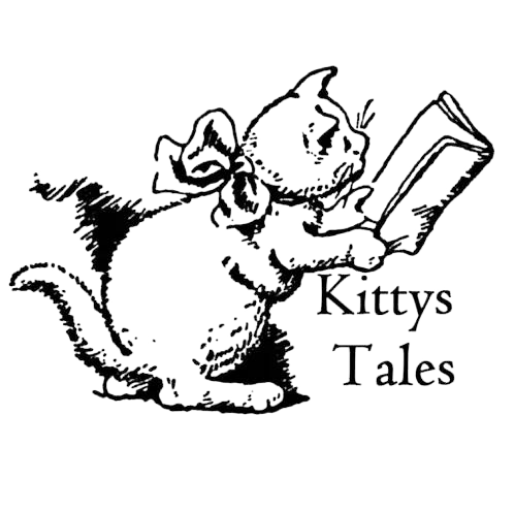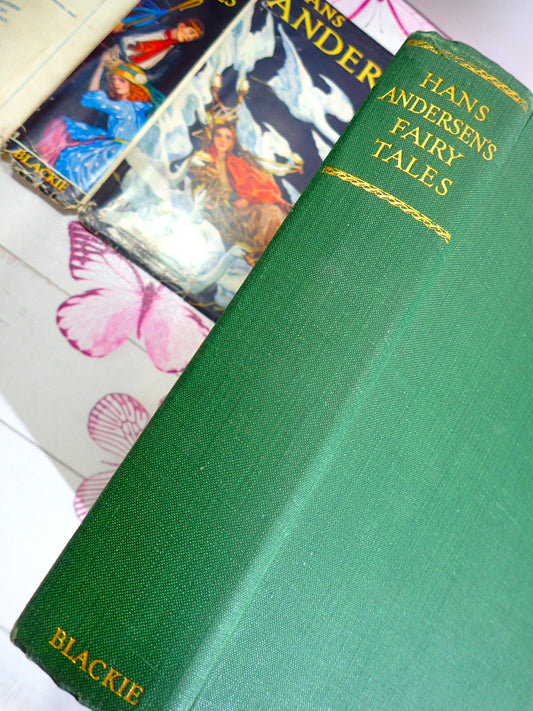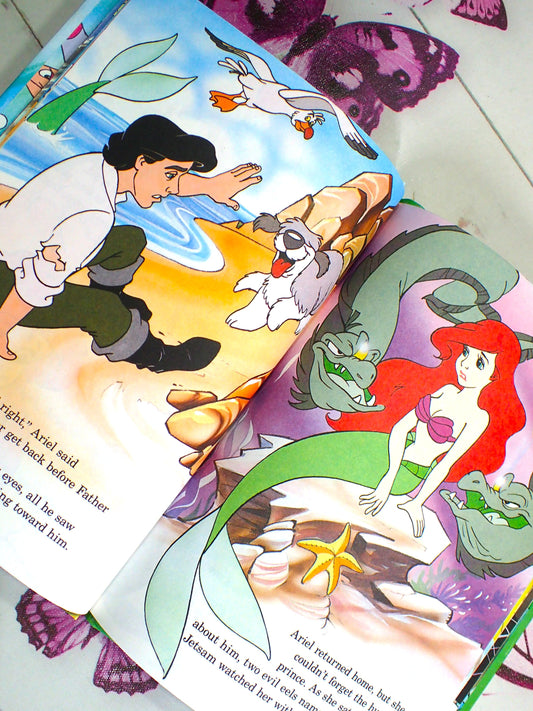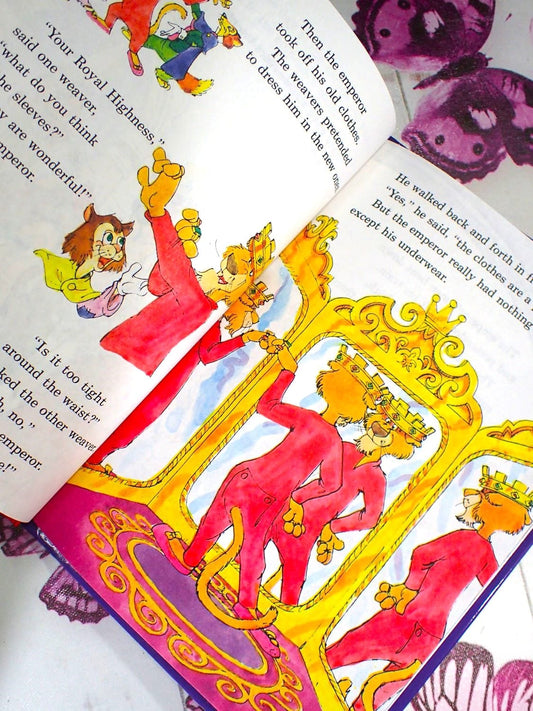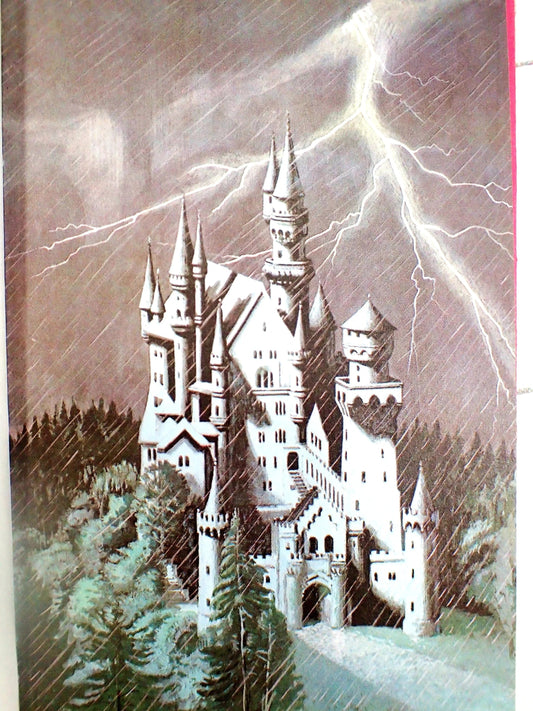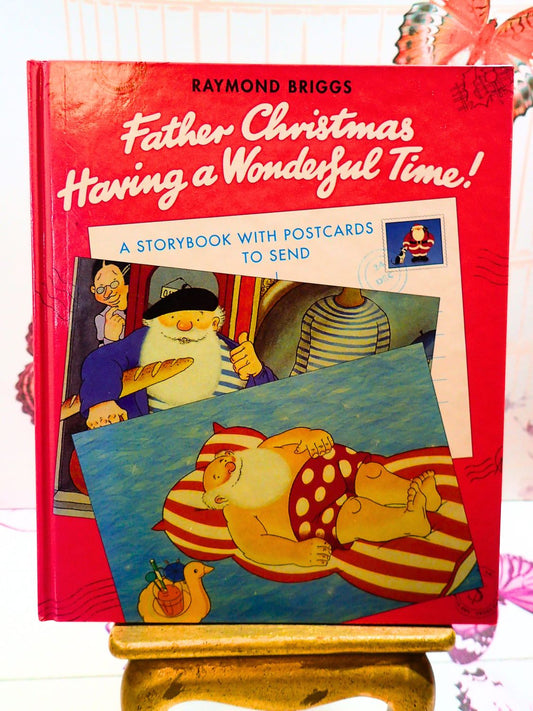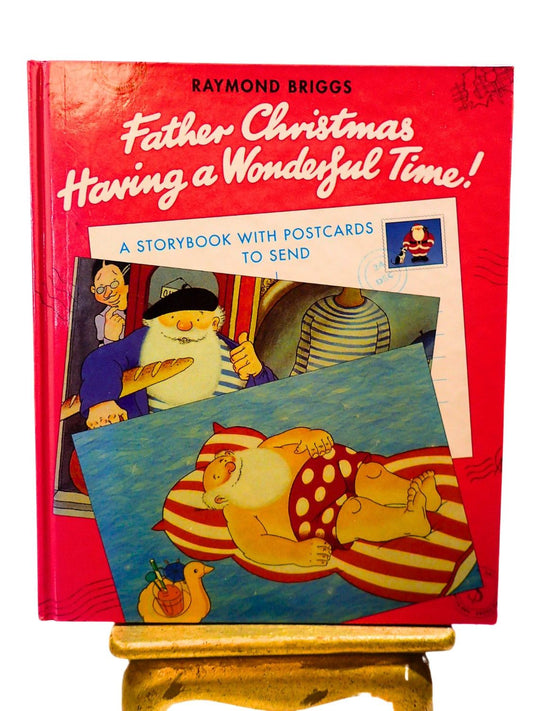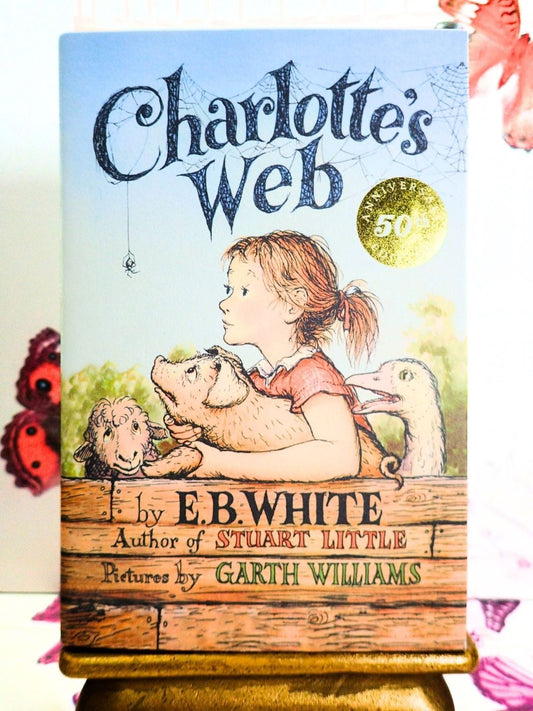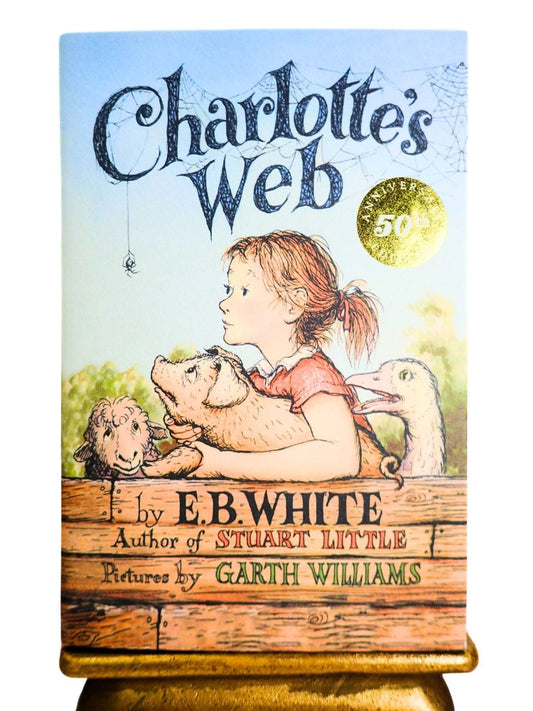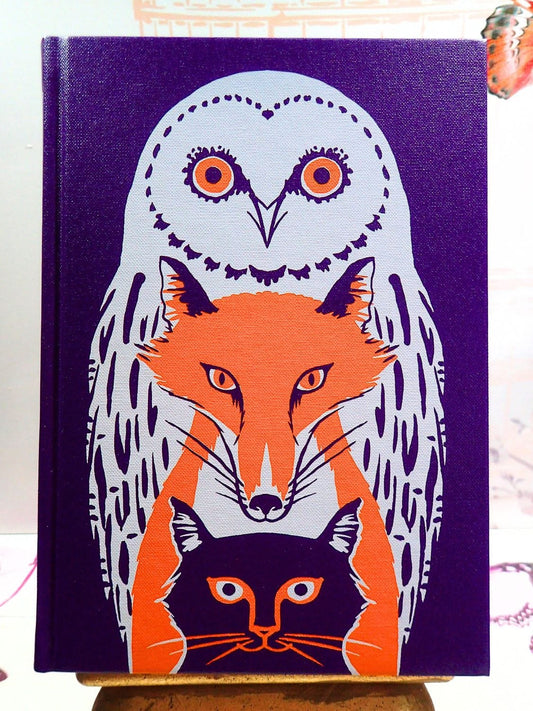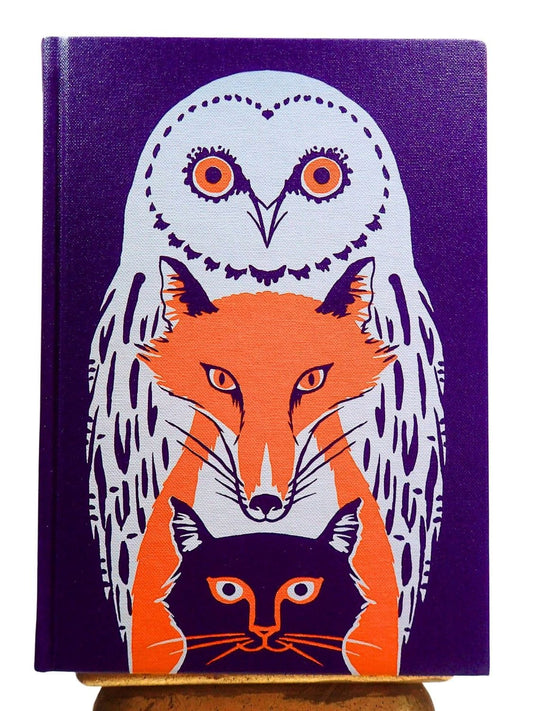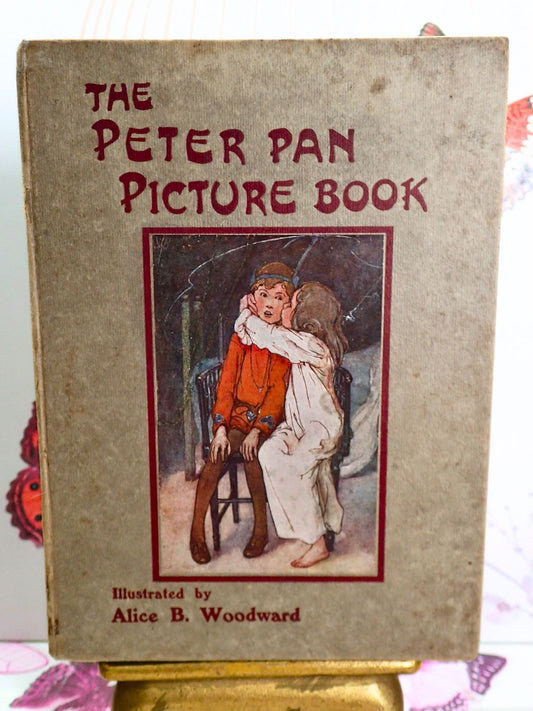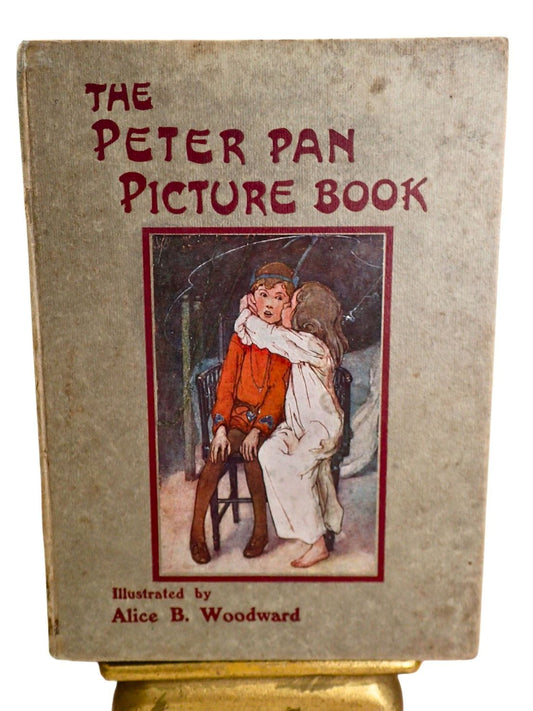Hans Christian Andersen Books
-
Be enchanted by the magical world of Hans Christian Andersen's fairy tales. Dance till your feet drop in his classic story "The Red Shoes". Experience life as a tiny person in "Thumbelina", climb into that fourposter bed like a princess, in the all time favourite old fairy tale book "The Princess and the Pea", or have your heart broken in "The Steadfast Tin Soldier" and "The Little Mermaid".
All these marvellous old stories can be found in our wonderful collection of vintage Hans Andersen books alongside rare antique books and collectable editions we have by this all time great author for sale in our bookstore. Browse a while discover a vintage classic children's book and find within a fairytale treasure of children's literature. -

-
Thumbelina Hans Christian Andersen Illus. by Adrienne Adams First Edition Childrens Book
Vendor:Kittys TalesRegular price £48.00 GBPRegular priceUnit price / per -
Hans Andersen's Fairy Tales Vintage Children's Book Beautifully Illustrated Fairytales
Vendor:Kittys TalesRegular price £48.00 GBPRegular priceUnit price / per -

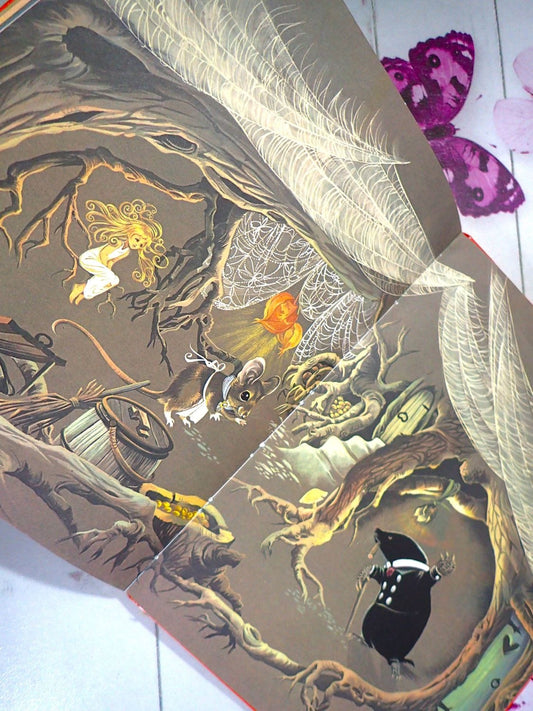
Gift Book of Hans Christian Andersen Fairy Tales Vintage Children's Stories Dean First Edition
Vendor:Kittys TalesRegular price £12.00 GBPRegular priceUnit price / per -
The Little Mermaid Vintage Children's Book Disney Hans Andersen Fairy Tale
Vendor:Kittys TalesRegular price £8.00 GBPRegular priceUnit price / per -
The Emperor's New Clothes Vintage Children's Book Hans Andersen Fairytale Disney 1993
Vendor:Kittys TalesRegular price £8.00 GBPRegular priceUnit price / per -
The Princess and the Pea Vintage Ladybird Book Series 606D Well Loved Tales 1970s
Vendor:Kittys TalesRegular price £14.00 GBPRegular priceUnit price / per
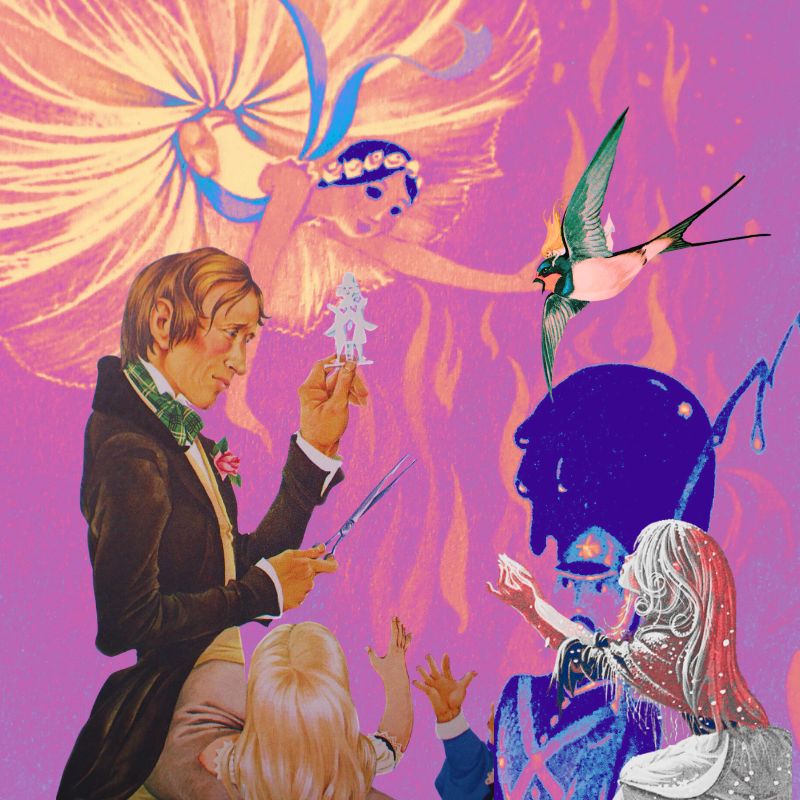
"'You shall no longer be called Thumbelina,' said the king of the flowers to her, 'for it is not a pretty name, and you are so lovely! We will call you Maia.' 'Farewell!' farewell!' sang the swallow, and he flew away from the warm countries, far away back to Denmark. There he had a little nest just over the window of the man who writes stories for children. 'Quivit, quivit, quivit!' he sang to him, and from him we have learned this story."
Thumbelina, Has Christian Andersen
How many of the lovely old fairy tales do you remember? The chances are many of these wonderful old children's stories were written by the Danish author Hans Christian Andersen.
From Ladybird books such as Well Loved Tales’ versions of his fairy tales, childhood favourites like ‘The Princess and The Pea’ and ‘The Little Mermaid’, to lovely antique, collectable and rare books, beautifully illustrated by artists such as Arthur Rackham and Mabel Lucie Attwell; or famous film or television adaptations of Hans Andersen favourite stories such as ‘The Snow Queen’ and ‘The Red Shoes’ - nearly all of us at some time will have been entertained by the classic old fairy story books written by this weaver of enchanting tales.
But who was Hans Christian Andersen?
On April 2nd 1805, the world of children’s fairytales was to change forever, Hans Christian Andersen was born in Odense, a small town on the island of Fyn, Denmark (Garfield, 2004).
He was no prince born in the magical castles of his stories, his family were very poor, his father in 1805 was a shoemaker’s apprentice and his mother Anne Marie Anderstatter’s life had been that of hardship and she was illiterate. After the death of his father, Hans Andersen the first following the Napoleonic wars, to escape the threat of destitution his mother became a laundry woman so she could support herself and her son Hans. (Hürlimann,1967). But like another classic author, Charles Dicken’s who was born just seven years later, the hard start they both had in life - suffering along with the poor, enriched their minds and fuelled their writing ambitions to achieve some of the greatest literary works of our history.
Collapsible content
Read More
The early 19th century, was a fertile time for the world of fantasy writing, Jakob and Wilhelm Grimm also published their first classic book of fairy tales in 1812, and this volume proved to be of great inspiration to Andersen. Perhaps it gave him an inkling of what could be achieved armed with just a fervent imagination and a writing instrument. The difference between Andersen and the brother’s Grimm fairytales is the wonderful stories he wrote like “The Steadfast Tin Soldier” were entirely of his own creation, unlike the Grimm’s who achieved a different feat entirely, that of recording and preserving the historic folktales, myths and stories of the faery folk that had existed in shared narrative form for centuries before but never having been written down for posterity, which is the great service they did for literature.
At the age of fourteen, Andersen, like the English folk and fairy tale character of our old children’s books, Dick Whittington, set off to Copenhagen to make his fortune. He was ill-equipped to do so, himself at the time being as illiterate as his mother was, but fate works in strange ways and having found a patron he returned to school at seventeen and once he had learnt to read and write the world of books was truly his oyster.
Andersen was an unusual man, particularly in personality but also quite markedly in his striking and ungainly appearance. Hürlimann (1967) draws a parallel between the man Hans Christian Andersen and one of his most famous children’s fairy stories “The Ugly Duckling”. He was a tall and gangly man bringing to mind Oscar Wilde’s caustic description of Aubrey Beardsley, he was ‘hatchet-faced’. Andersen had a large nose and piggy eyes. However, as a teller of tales was he became animated and entrancing.
Hans Christian Andersen went on to great fame and celebrity as a writer, touring the homes of the aristocracy and other great celebrities of the day, he became friends with Jenny Lind, the Swedish Opera singer known as “The Nightingale” and it is broadly believed that she inspired his tale of ‘The Nightingale’, just as his humble and loving mother and the hardships she suffered, is believed to have inspired his heartbreaking tale of “The Little Match Girl” (Anne Marie Andersdatter, 2024).
Andersen never married, so he never experienced a family of his own, the nearest perhaps he came to that was spending time with Charles Dickens’ family and seemingly never inclined to leave after accepting an invitation for a two week stay, five weeks later he was asked to leave somewhat acrimoniously, souring his friendship with Dickens (Hans Christian Andersen, 2024).
Despite never experiencing the joy of being part of a family - maybe why so many of his tales are tinged with sadness, this talented author of children’s books has brought joy to so many with his enchanting stories that have stood the test of time. When he died in 1875, he had written several volumes of fairy tales, various travel books, and become a huge celebrity. But he never forgot the home of his childhood, which must have been happy despite the hardship. Hürlimann, (1967) recalls the lines of this poem Hans Christian Andersen published at the age of seventy:
“One little room, a scullery,
Kindliness and quiet things;
Never a Christmas Eve like that
In all the palaces of Kings."
References and Recommended Further Reading:
Books by this Author
Timeline List of the Fairy Tales and stories written by Hans Christian Andersen:
c.1820 "The Tallow Candle" (believed to be his first story)
1835: "The Princess and the Pea"
1835: "Thumbelina"
1835: "The Tinderbox"
1835: "The Travelling Companion"
1835: "The Naughty Boy"
1835: "Little Claus and Big Claus"
1835: "Little Ida's Flowers"
1837: "The Little Mermaid"
1837: "The Emperor's New Clothes"
1838 "The Steadfast Tin Soldier"
1838: "The Galoshes of Fortune"
1838: "The Wild Swans"
1839: "The Rose Elf"
1839: "The Storks"
1839: "The Flying Trunk"
1839: "The Garden of Paradise"
1840: "The Wicked Prince"
1841: "The Swineherd"
1841: "Ole Lukoie"
1843: "The Ugly Duckling"
1843: "The Angel"
1843: "The Nightingale"
1843: "The Sweethearts; or, The Top and the Ball"
1844: "The Snow Queen"
1844: "The Fir-Tree"
1845: "The Red Shoes"
1845: "The Little Match Girl"
1845: "The Elf Mound
1845: "The Bell"
1845: "The Jumpers"
1845: "The Shepherdess and the Chimney Sweep"
1847: "The Happy Family"
1847: "Little Tuk"
1847: "The Old House"
1847: "The Shadow"
1847: "The Story of a Mother"
1852: "The Goblin and the Grocer"
1852: "It's Quite True"
1855: "Blockhead Hans"
1858: "The Philosopher's Stone"
1861: "The Ice-Maiden"
1861: "The Snowman"
1861: "What the Old Man Does is Always Right"
1863: "The Teapot"
1865: "Golden Treasure"
1870: "The Most Incredible Thing"
* In addition to the above list H.C. Andersen wrote a variety of other books and works including Travelogues, Poetry and his own life story.
Shop more of our Best Loved Vintage Books:
-
Father Christmas Having a Wonderful Time Raymond Briggs First Edition Vintage Children's Book
Vendor:Kittys TalesRegular price £48.00 GBPRegular priceUnit price / per -
Charlotte's Web E.B.White Classic Vintage Children's Book 50th Anniversary Edition Puffin Hardback
Vendor:Kittys TalesRegular price £12.50 GBPRegular priceUnit price / per -
The Midnight Folk John Masefield Vintage Children's Book Folio Edition First Thus Slipcase
Vendor:Kittys TalesRegular price £68.00 GBPRegular priceUnit price / per -
The Peter Pan Picture Book by J. M. Barrie Classic Antique Children's Story Beautifully Illustrated
Vendor:Kittys TalesRegular price £89.00 GBPRegular priceUnit price / per
Browse More of Our Best Author Collections
-
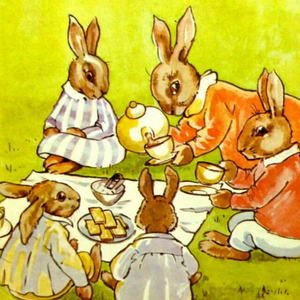
Vintage Children's Books
Why buy "Vintage Children's books" from Kittys Tales? We stock all sorts...
-
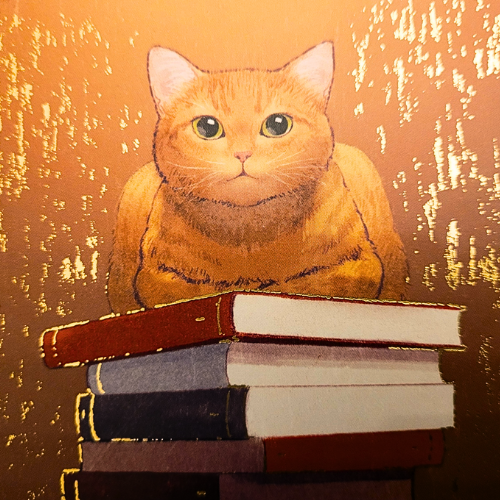
Our Latest Vintage Book Finds
What books are in Kittys Tales Latest Finds Collection? In this Kittys...
-
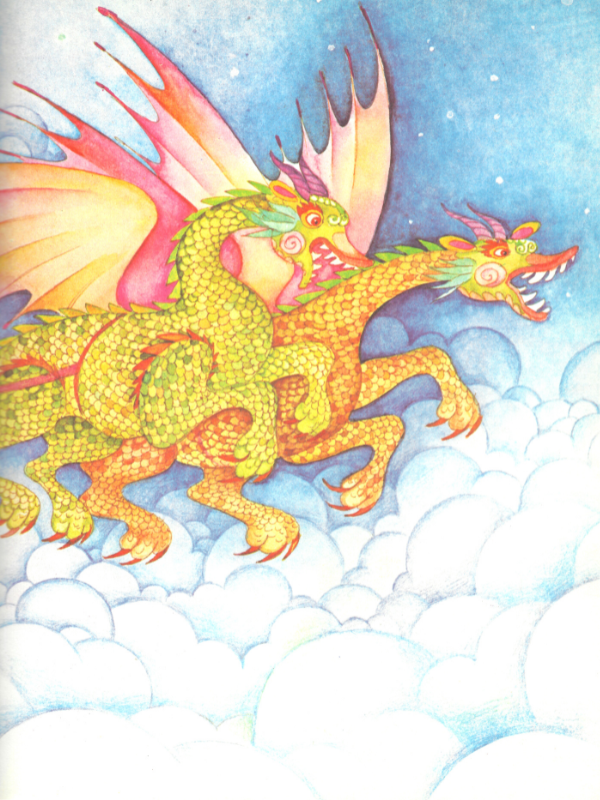
Fairy Tale Myth and Fantasy Books
Why choose our Vintage Fairytale, Myth and Fantasy books? Old Fairy Tale...
